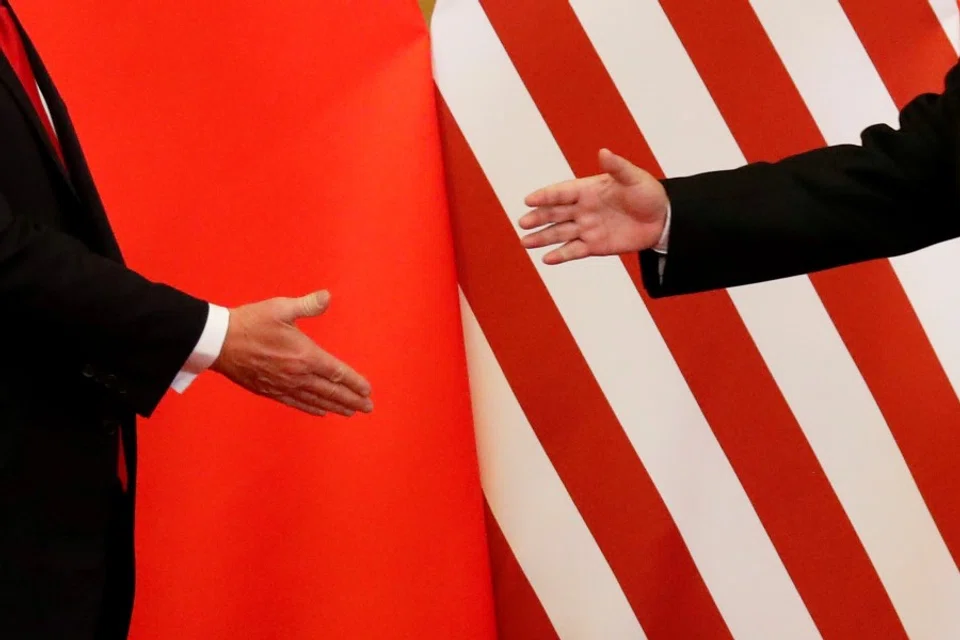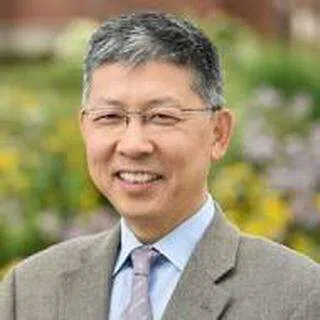Trading places: A confident China and an insecure America?
Amid adjustments as China and the US size each other up anew and recalibrate their relationship, the international community needs to be prepared for the uncertainties an increasingly insecure America and a more confident China may bring to the world. Professor Zhu Zhiqun of Bucknell University in the US opines that it is entirely possible for America's declining confidence vis-à-vis China to be based on its exaggerated assessment of China's influence, while China's growing confidence is built upon an inflation of China's real power.

Two hundred years ago, Napoleon presumably made a well-known prediction about China's future: "Let her sleep, for when she wakes she will shake the world." During the 19th and much of the 20th centuries, China was weak and poor, and few people thought China would "wake up" anytime soon.
Fast forward into the beginning of the third decade of the 21st century. The longstanding Western concern about China's rise and challenge to the global order seems to have become reality.
...the Communist Party's major concern has been to avoid the collapse of China's political system
The People's Republic of China has never felt secure from the very beginning with numerous disruptive political campaigns internally and real or potential military threats externally. Today, it is widely assumed that China is spending more on maintaining stability (维稳 weiwen) than on its military. Indeed, the Communist Party's major concern has been to avoid the collapse of China's political system. From fighting against Western "spiritual pollution" in the 1980s to resorting to tight surveillance and censorship now, the Party has always been worried that stability at home will be replaced by chaos (乱 luan).
In contrast to China's deep sense of insecurity and its serious concern about its domestic order, the US has always been highly confident of its democratic system at home and its soft power globally. The US has been the world's sole superpower after the Cold War, commanding a superior military and innovative economy. Since the beginning of the 21st century, China's economy has leapfrogged to the second largest in the world. To the disappointment of many Americans, China has not become more like America in terms of its political system. As a result, the US has become increasingly concerned about China's potential to challenge the liberal international system that America has built and led since the end of World War II.
A new paradigm
Most recently, however, China and the US seem to have traded places. It is the US that now worries about China's attempt to interfere in America's domestic politics. And it is China that is growing to be more confident in its political system and global influence.
Former Chinese Vice Foreign Minister Fu Ying's exchange with Pelosi at the MSC is quite telling of the changing winds.
At the 2020 National Governors Association spring conference on 8 February, US Secretary of State Mike Pompeo claimed that "competition with China is not just a federal issue", it takes place at the state and local levels, and "it affects our capacity to perform America's vital national security functions". Pompeo painted a chilling picture of how China has infiltrated into America's national and local politics.

A few days later at the Munich Security Conference (MSC) in Germany, Pompeo, Secretary of Defense Mark Esper, and House Speaker Nancy Pelosi all focused on the perceived China threat, appealing to America's European allies to counter China's influence. One wonders: where is America's confidence when challenged by an authoritarian regime?
Former Chinese Vice Foreign Minister Fu Ying's exchange with Pelosi at the MSC is quite telling of the changing winds. In response to Pelosi's claim that Huawei, the Chinese telecommunications company, challenges the Western democratic system, Fu said, "China, since its reform started 40 years ago, has introduced all kinds of Western technologies ... and China has maintained its political system. It is not threatened by these technologies." Fu asked, "How, if Huawei's technology with 5G is introduced into Western countries, will it threaten the political system? Do you really think that the democratic system is so fragile that it could be threatened by this single hi-tech company of Huawei?"
China appears frustrated that its version of the global order is unappreciated and even resisted by the US.
As the US becomes less secure, China seems to be increasingly confident in its political system and culture. In the so-called Confidence Doctrine, the Chinese Communist Party calls for Party members, government officials, and the Chinese people to be "confident in our chosen path, confident in our political system, confident in our culture, and confident in our guiding theories (四个自信)."
Meanwhile, China appears frustrated that its version of the global order is unappreciated and even resisted by the US. Its new policies, such as the launch of the Belt and Road Initiative (BRI) and the establishment of the Asian Infrastructure Investment Bank (AIIB), are apparently intended to modify the current international system and make it more representative of emerging economies. But such complement to, not replacement of, the international order is not endorsed by the US, even though many US allies have voiced support for China's efforts.
It is debatable whether the Confucius Institutes at colleges and Confucius Classrooms at grade schools have violated academic freedom and have engaged in unlawful activities that require special attention from the FBI.
Another example of America's declining confidence is the closure of Confucius Institutes on US college campuses. Since the University of Maryland established the first Confucius Institute in North America in 2004, dozens of US universities and colleges have hosted these Chinese language and culture learning centres, in collaboration with their partner institutions in China. In recent years, Confucius Institutes have become controversial due to their funding from China's Ministry of Education and alleged encroachment of academic freedom. FBI Director Christopher Wray said in 2018 that his agency was "warily watching" the institutes. In the past year, at least 10 institutes in the US have closed or announced plans to shutter, including the one at the University of Maryland, according to Inside Higher Ed, a digital resource on higher education.
The 2019 US National Defense Authorization Act prevents the Defense Department from funding institutions that host Confucius Institutes except in cases in which the institutions have obtained a waiver. Politicians who are habitually critical of China such as Republican Senators Marco Rubio (Florida) and Ted Cruz (Texas) have pressured universities in their states to close Confucius Institutes.
It is debatable whether the Confucius Institutes at colleges and Confucius Classrooms at grade schools have violated academic freedom and have engaged in unlawful activities that require special attention from the FBI. If they were indeed engaged in any wrongdoing, they deserve penalty including closure. But if they were forced to close out of fear or suspicion, it not only did a disservice to the students in those institutions who were learning Chinese language and culture, but also disrupted normal cultural and educational exchanges between the two countries.

Changing for better or worse?
Will the world be a better place if the two top powers really trade places? An insecure America and an over-confident China will create more conflicts between themselves and lead to more uncertainties in the world.
Indeed, bilateral relations have continued to deteriorate recently. On 19 February, China expelled three Wall Street Journal journalists for the paper's refusal to apologise for an op-ed with an offensive title "China is the Real Sick Man of Asia" in the midst of the coronavirus outbreak. This was apparently also partially in response to the US government's designation a day earlier of five official Chinese news media as "foreign missions". No doubt these media represent official Chinese voices, but why did it take the US government several decades to figure this out? This is further evidence that the US is genuinely worried about China's growing influence now.
Perhaps the only bright spot in the deteriorating and delicate bilateral relationship now is that top leaders on both sides still seem committed to maintaining a strong relationship.
For example, as his aides were contemplating a tighter high-tech ban on China, President Donald Trump tweeted on 18 February that "the United States cannot & will not become such a difficult place to deal with in terms of foreign countries buying our product, including for the always used National Security excuse." He added, "We want to sell product and goods to China and other countries. That's what trade is all about. I want China to buy our jet engines, the best in the world." Trump has also publicly expressed his support for China and President Xi Jinping as China combats the coronavirus.
It is entirely possible that America's declining confidence vis-à-vis China is based on its exaggerated assessment of China's influence while China's growing confidence is built upon an inflation of China's real power...
This is not the first time Trump has struck a different note from his subordinates, almost all of whom consider China a national security threat. In July 2019, right after a meeting with President Xi on the sidelines of the G20 summit in Osaka, Japan, Trump declared, "I think we're going to be strategic partners."
It is entirely possible that America's declining confidence vis-à-vis China is based on its exaggerated assessment of China's influence while China's growing confidence is built upon an inflation of China's real power, and such abnormalities will be rectified, with the US returning to be a confident global leader and China continuing to learn to be a responsible and respectful power. But before that happens, the international community needs to be prepared for the uncertainties an increasingly insecure and inward-looking America and a more confident and assertive China may bring to the world.
The reality is that China is still a large developing nation; it must remain focused on domestic development. It should scale back its global ambitions and refrain from punching above its weight. Meanwhile, the US needs to renew its confidence and continue to play the leadership role in maintaining the liberal international order and promoting global development and democratisation. No matter how the power structure changes between China and the US, they still need each other. The outbreak of coronavirus in China and over 60 other countries including the US suggests that multilateral cooperation, especially between the two major powers, remains critical for addressing global challenges.



![[Photos] Fact versus fiction: The portrayal of WWII anti-Japanese martyrs in Taiwan](https://cassette.sphdigital.com.sg/image/thinkchina/3494f8bd481870f7c65b881fd21a3fd733f573f23232376e39c532a2c7593cbc)

